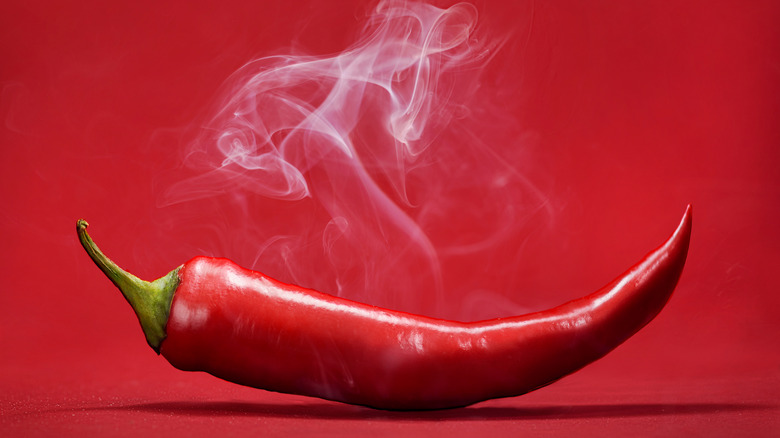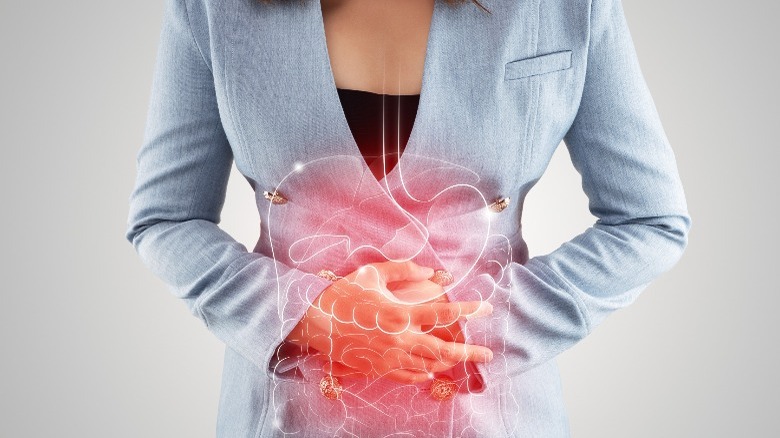Does Eating Spicy Food Reduce Inflammation?
When it comes to food, most people have a different idea of what "spicy" means. For example, you might be able to handle, or even enjoy, the heat of a few extra jalapeños on your favorite burger; meanwhile, your friend might start to sweat profusely from one pepperoncini pepper. So how can some people handle spicy foods better than others?
Spicy foods contain a component called capsaicin (per WebMD). They stick to pain receptors, which are likely found on your tongue and digestive tract. In fact, hot peppers are measured in spice by heat units on the Scoville Heat Scale (via the Scoville Heat Scale). The scale measures how much capsaicin is in a pepper, giving you its heat. For example, a pepperoncini has a max heat of 500 Scoville heat units, while the max heat of a jalapeño is 8,000 Scoville heat units (per PepperScale). Keep in mind, some people might just simply find the burning sensation from spicy foods enjoyable, but others downright dislike it, according to McGill University.
The saying "no pain no gain" may be applicable for spicy foods. After all, some experts think there could be added health benefits from eating spicy foods.
Spicy food may reduce inflammation, but it also might promote it
The idea that certain spices can help fight inflammation is hardly new, according to Healthline. In fact, ayurvedic, one of India's oldest medicines, uses customary spices in its medical care (per Johns Hopkins Medicine). Certain spices like ginger and garlic embody anti-inflammatory qualities that have been used to tend to a range of health conditions (via Healthline).
Nevertheless, the majority of research on spicy foods centers on capsaicin, which may improve your metabolism and make it easier to lose weight since it helps you control how much food you consume throughout the day, says the Cleveland Clinic. Additionally, capsaicin has been successfully used to treat a variety of pains and even arthritis (per StatPearls). But not everyone agrees that spicy foods are a guarantee for reducing inflammation. In fact, at times it could end up making things worse (via Eat This, Not That!).
Although there hasn't been a lot of research done on the influence spicy food has on those with inflammatory bowel disease (IBD), for some, spicy food does cause pain or worsen their symptoms, according to Inflammatory Bowel Disease Relief. Dr. Rebecca Tung told Eat This, Not That! that spicy foods can cause inflammation in the gut, which can lead to stomach aches and acne breakouts.
All in all, spicy foods might help some people fight inflammation but can also promote it in others.


